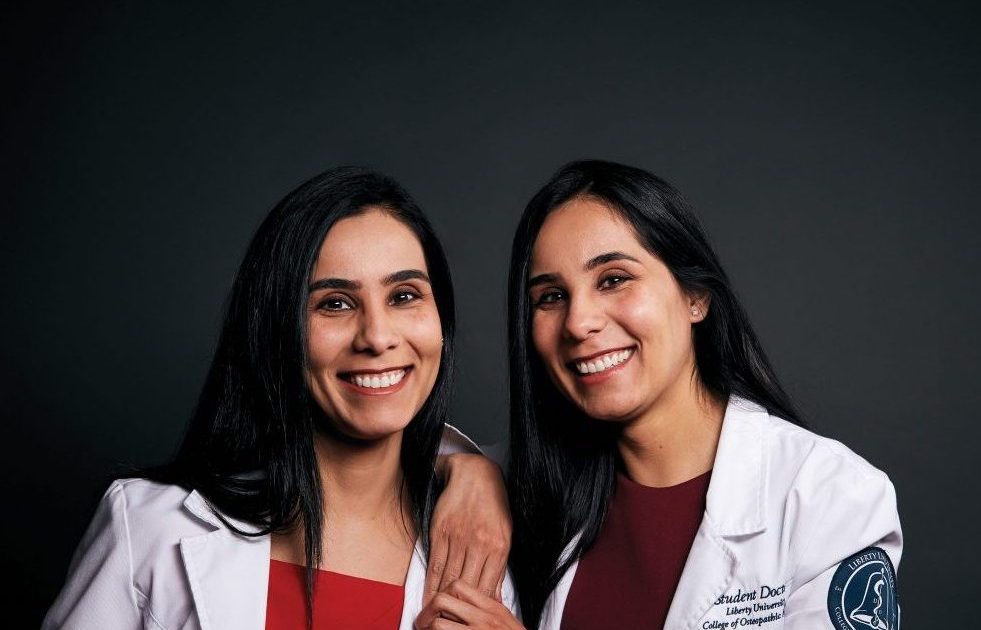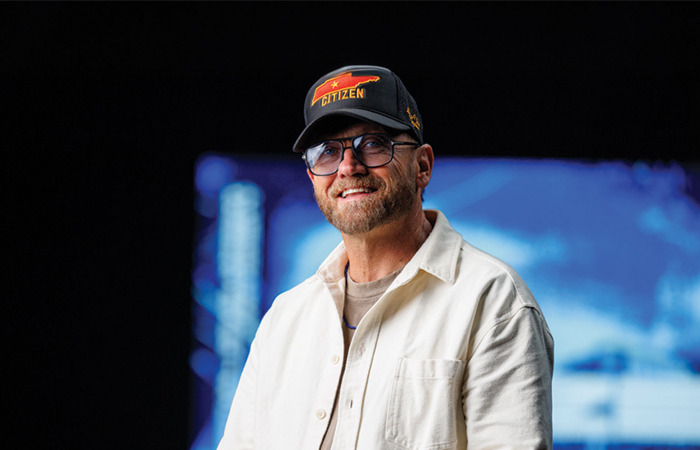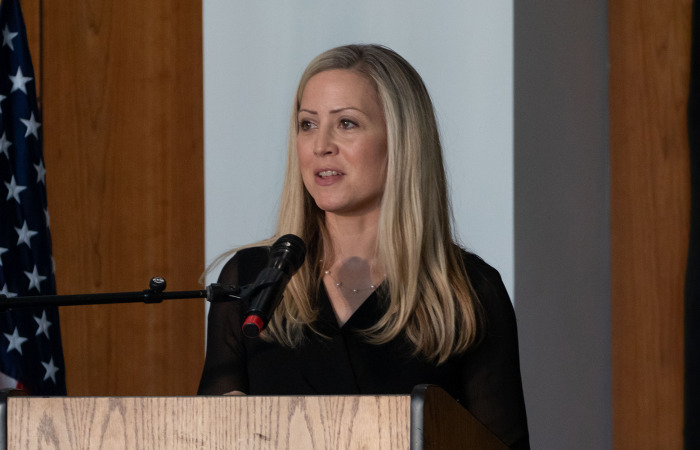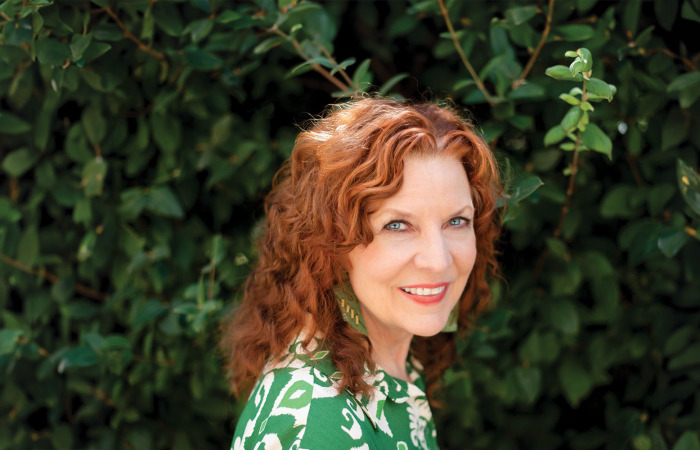Twin sisters from Iraq survive the perils of war to start new life in U.S. as doctors
During Match Day at Liberty University College of Osteopathic Medicine, twin sisters and recent graduates Noor and Sarah Alnazal held sealed envelopes containing the location of their residency placements. They took a deep breath, quickly ripped them open, and scanned the letters.
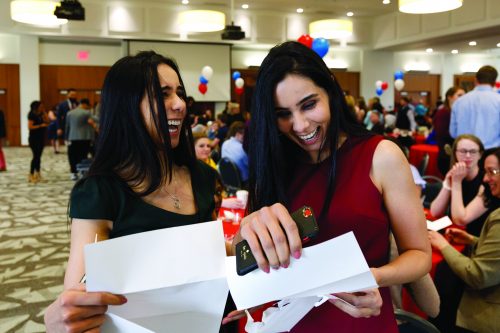
Sarah (left) and Noor Alnazal react to receiving their top residency choice — the University of Texas San Antonio — during Match Day at Liberty University College of Osteopathic Medicine on March 15.
How appropriate, for twins, that the letters were identical; they would be serving together at the University of Texas San Antonio Hospital in the radiology department. They screamed in delight and hugged each other.
It was a moment nearly 15 years in the making.
At age 32, the sisters have come a long way since they first started their medical training in 2004 in their native country of Iraq.
“We were both very studious,” Noor said, noting that high-schoolers in Iraq were automatically placed in a college based on their grades. If you get the highest grade marks, you get placed into medical school. We both scored well, and we enjoyed it.”
But at the time, their country was in turmoil. The War on Terror was in full swing and the United States and coalition forces had entered into war with Iraq. Their environment quickly became violent.
“Things changed a lot (once the war started),” Sarah said. “There was no government in control, and there were a lot of extremist groups that started ruling over the region. The trouble started about a year into the war, and then it escalated fast. There was no military or police. It was just the militias.”
Noor said it was a dangerous time to be a nontraditional Muslim woman. They were threatened by Islamic extremists because they did not cover their heads. Many women, including some of their classmates and professors, were killed for not following Islamic tradition.
“We were born Muslim, but we didn’t practice,” Noor said. “We didn’t pray or fast or anything like that. That was something they (the extremists) didn’t like.”
In 2007, as the oppression of women in Iraq became more severe, the twins were kicked out of school. Two days later, they decided to take a bold risk and assist the U.S. forces.
“We wanted to make a change, especially as women,” Sarah said. “Women were very oppressed. We wanted to be part of the change and do what we could. When you don’t have your freedom, you realize that you have to do something about it.”
They left their family, who supported them even knowing that it could cost them their lives.
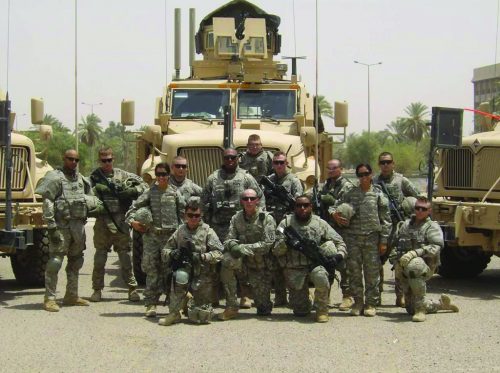
Sarah and Noor Alnazal served two years as translators for the U.S. Army at Forward Operation Base Falcon in Baghdad, Iraq.
Because they spoke English well, the twins became translators for the U.S. Army and were stationed at Forward Operation Base Falcon in Baghdad. They would follow troops into areas that had been cleared of extremists and talk to residents. Despite the chaos and destruction that comes from war, it was clear that the Iraqi people still had hope.
“Businesses and homes were burnt down,” Noor said. “(Residents) said when they saw U.S. troops, they felt safer. The American forces did a lot more than just go to war. After we would clear an area from terrorists, we would go in and then help the businesses in the area and the schools and the hospitals. These were things that the media didn’t talk about. The U.S. military really did help with the rebuilding (of Iraq), not just with the war.”
Though they experienced the danger together, the worry they had for each other made them wonder if it would have been easier to go through it alone.
“There were nights I would lie awake and listen for Sarah to come back from a mission,” Noor said. “When I heard her boots thump against the floor, then I knew she was safe.”
“It was scary, but we’re lucky,” Sarah added. “I didn’t want anything to happen to Noor. I kept thinking I would have felt better if it was just me (during the war).”
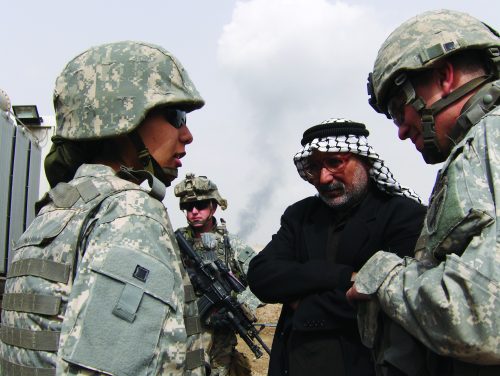
But finishing medical school was still a priority for the sisters. At night, they would continue to study in hopes of someday returning to medical school. As translators, they even had the chance to learn from Army medical personnel.
“We would translate documents (at hospitals) because we had a medical background,” Noor said. “Sometimes, we’d even translate for the Iraqi medics when the American doctors would train them.”
“Sometimes, we would have American doctors or nurses go in to teach the Iraqi doctors about new technology,” Sarah added. “The Iraqi doctors didn’t know much about what was going on around the world; they just took care of their critical cases at the hospital and moved them to the international base. People really appreciated the help of the American doctors, especially the patients who were injured during the war.”
The twins served two years with the U.S. military and said the experience gave them a glimpse into what freedom could mean for them, including the freedom to work, as women, in any profession without fear of repercussions. “They (American troops) didn’t have a problem working with women,” Sarah said.
The sisters decided it was time to move to the U.S. in 2009 and start a new life in San Antonio, Texas. The years of living in danger and fearing the future were over.
“When I arrived at the airport in Texas, I realized that I didn’t have to worry about explosions anymore,” Sarah said. “I was safe in America.”
Their family followed them three years later.
In Texas, they earned their bachelor’s degrees in biology at the University of Texas at San Antonio and then applied to multiple medical schools. LUCOM was the first to offer them an interview, and when they visited, they decided they liked the program so much that they didn’t need to consider any other schools. They were accepted in 2015.
“At LUCOM, they get to know you as a person,” Sarah said. “I feel almost everyone knows who we are and where we come from. They care about us as people.”
The sisters reached a special milestone in medical school; they both became U.S. citizens, officially making America their home.
As they prepare for their residencies, the sisters feel confident about where life has taken them and how they can use their past experiences to help their future patients.
“I think going through challenges in my life has taught me to persevere and face difficulties,” Noor said. “That will help me relate to my patients when they are going through the worst times in their lives. I can help them realize that things could get better even when it seems there is no light at the end of the tunnel.”
